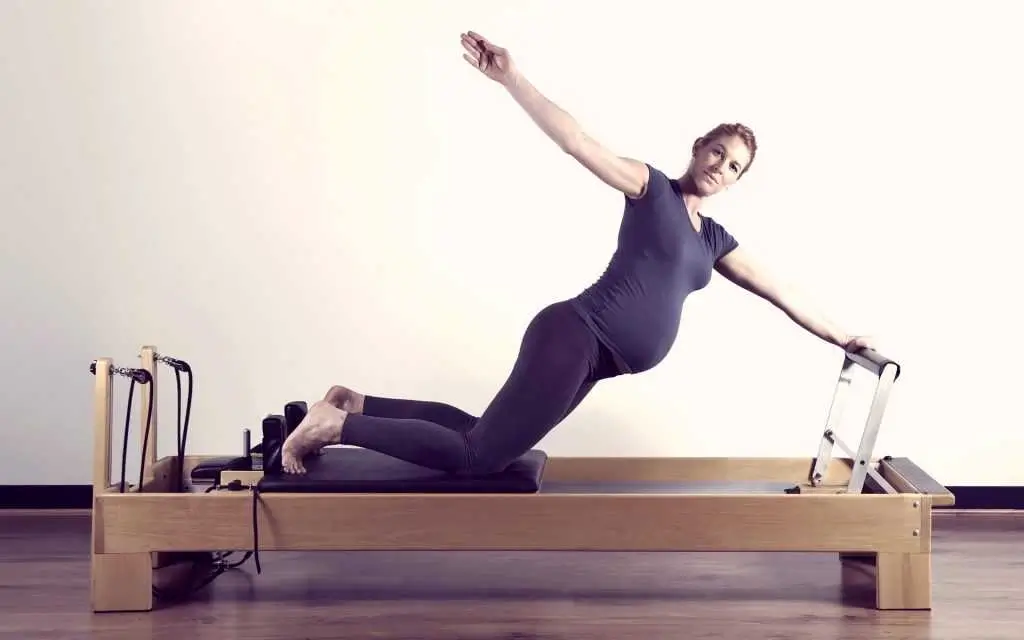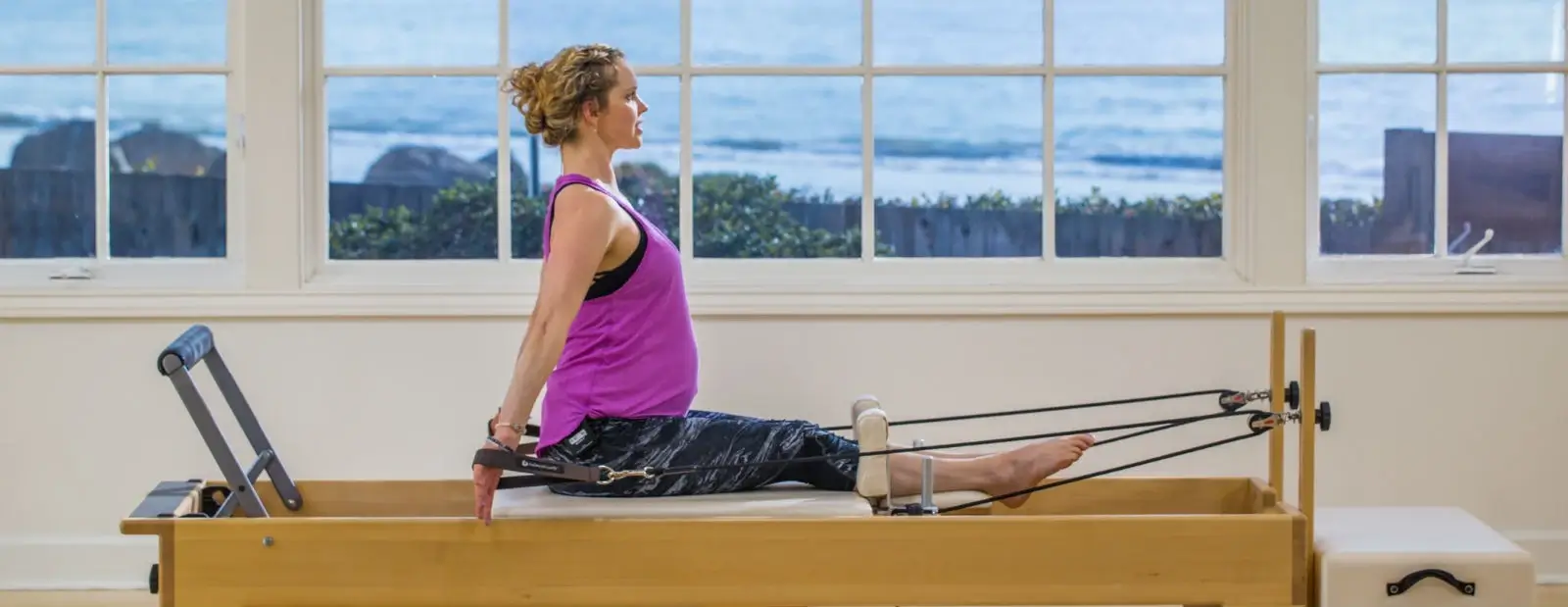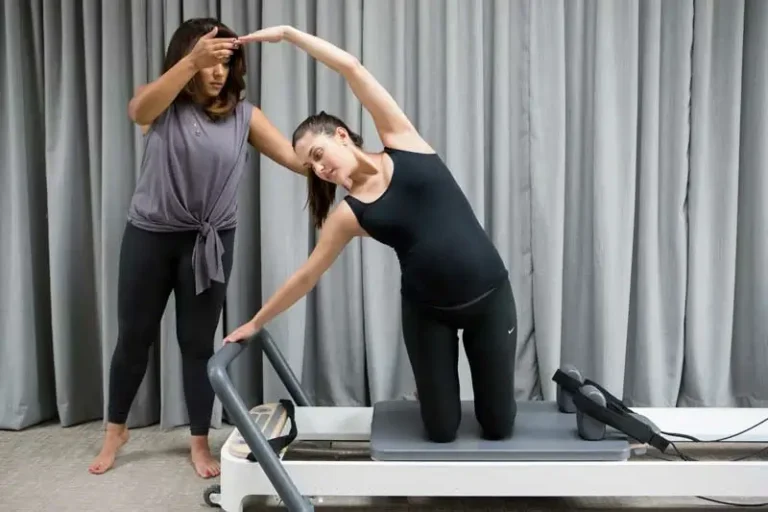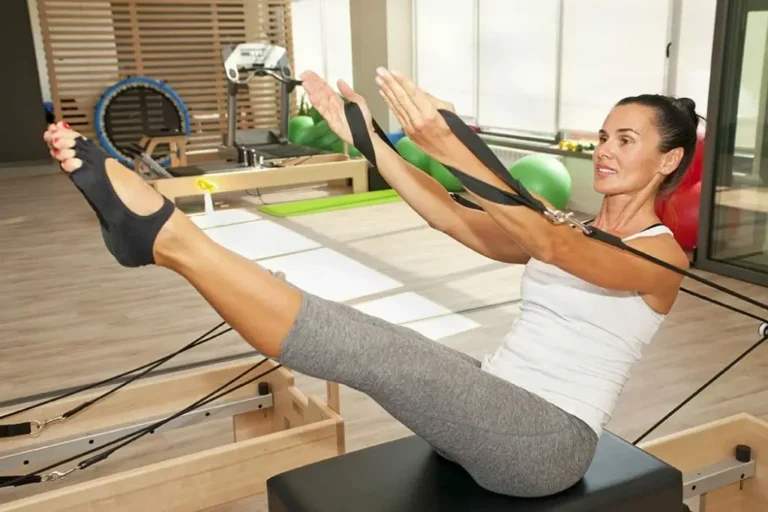Can I Do Reform Pilates While Pregnant?
Pregnancy is a transformative journey, both physically and emotionally. Many expectant mothers seek ways to stay active and maintain their well-being during this crucial period. One popular question that often arises is, “Can I do reformer Pilates while pregnant?” In this article, we’ll explore the benefits of exercise during pregnancy, the specifics of reform Pilates, safety considerations, and practical tips for expectant mothers.

Definition of Reform Pilates
Pregnancy and Exercise: Reform Pilates is a form of exercise that emphasizes core strength, flexibility, and overall body awareness. The use of specialized equipment, like the reformer machine, sets it apart from traditional Pilates.
The importance of staying active during pregnancy is well-established. Engaging in regular exercise can contribute to physical health, mental well-being, and better preparation for labor.
Benefits of Exercise During Pregnancy
Physical Health
Regular exercise during pregnancy has been linked to improved cardiovascular health, reduced back pain, and enhanced stamina.
Mental Well-being
Exercise releases endorphins, the body’s natural mood lifters, which can help combat pregnancy-related mood swings and anxiety.
Preparation for Labor
Improved strength and flexibility from exercise can be advantageous during labor and delivery, making the process more manageable.
Understanding Reform Pilates
Reform Pilates is known for its low-impact nature, making it suitable for pregnant women, particularly those looking for a gentle yet effective workout.
The emphasis on core strength aligns well with the needs of pregnant women, as maintaining a strong core supports the spine and can alleviate discomfort.
Certified instructors can tailor exercises to accommodate the changing needs and limitations of pregnant women.
Safety Considerations
Before starting any exercise routine during pregnancy, it’s crucial to consult with a healthcare provider to ensure there are no contraindications.
Reform Pilates instructors can provide modifications to traditional exercises to suit the comfort and safety of pregnant participants.
Pregnant women should monitor exercise intensity, avoiding overexertion and ensuring that workouts remain within a safe range.
Common Concerns
Reform Pilates exercises can be adapted to minimize the risk of abdominal separation, a common concern during pregnancy.
Specific exercises in reform Pilates can contribute to pelvic floor health, a crucial aspect of well-being during and after pregnancy.
Reform Pilates focuses on balance and stability, essential elements for expectant mothers as their center of gravity shifts.
Tips for Practicing Reform Pilates During Pregnancy

Opt for certified instructors with experience in prenatal Pilates to ensure proper guidance and modifications.
Pregnant women should pay attention to their bodies and communicate openly with instructors about any discomfort or concerns.
Instructors can adapt exercises, allowing pregnant women to participate comfortably without compromising safety.
Testimonials and Success Stories
Real-life Experiences
Hearing success stories from other pregnant women who have practiced reform Pilates can provide encouragement and inspiration.
Positive Outcomes
Improved posture, reduced discomfort, and increased energy are common positive outcomes reported by pregnant women practicing reform Pilates.
FAQs
Can I start Reform Pilates during any trimester?
Yes, reform Pilates can typically be started at any trimester, but it’s advisable to consult with a healthcare provider first.
What modifications should I make as my pregnancy progresses?
As pregnancy progresses, modifications may include adjusting the intensity, avoiding certain positions, and using additional support.
Are there specific exercises to avoid?
Certain exercises, such as those involving lying flat on the back after the first trimester, should be avoided.
How does Reform Pilates benefit postpartum recovery?
Reform Pilates can aid in postpartum recovery by strengthening core muscles and promoting overall body awareness.
Is it advisable for high-risk pregnancies?
Pregnant women with high-risk conditions should consult their healthcare provider before starting any exercise program, including reform Pilates.
How often should I practice Reform Pilates during pregnancy?
The frequency of reform Pilates during pregnancy varies, but 2-3 sessions per week are generally recommended.
Can Reform Pilates help with back pain during pregnancy?
Yes, reform Pilates focuses on strengthening the core and supporting the spine, which can alleviate back pain.
Are there virtual classes available for pregnant women?
Many certified instructors offer virtual reform Pilates classes, providing a convenient option for pregnant women.
Is Reform Pilates suitable for first-time mothers?
Reform Pilates can be suitable for first-time mothers, but it’s essential to start slowly and communicate with the instructor about any concerns.
Are there any specific breathing techniques recommended during practice?
Deep, controlled breathing is typically incorporated into reform Pilates, promoting relaxation
Conclusion
In conclusion, reform Pilates can be a safe and effective form of exercise during pregnancy when approached with caution and under the guidance of a certified instructor. Expectant mothers are encouraged to prioritize their well-being and consult with healthcare providers before embarking on any fitness journey during pregnancy.








Hi, this is a comment.
To get started with moderating, editing, and deleting comments, please visit the Comments screen in the dashboard.
Commenter avatars come from Gravatar.